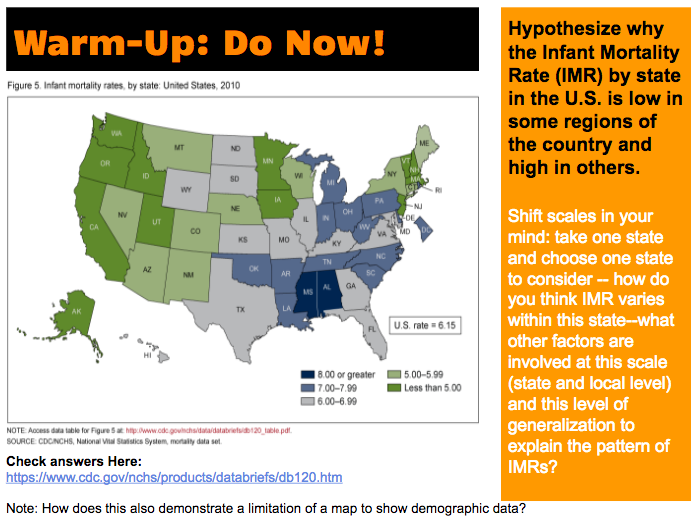|
Today we will focus on Fouberg Chapter 2 Key Question, "why do populations rise or fall in a particular place?". We will look at the Demographic Transition Model (DTM), and compare population theories (Malthus vs. Boserup) and discuss what critics say about Malthus and the DTM. HW: Watch Doubling Time Video, finish doubling time calculations; study Fouberg ch. 2 key questions 3-4; take notes & study -- next class is population pyramids & health
0 Comments
Leave a Reply. |
AuthorBookmark this page so that you can keep up with what is covered in class (esp. if you are absent). Archives
May 2018
Categories |

 RSS Feed
RSS Feed